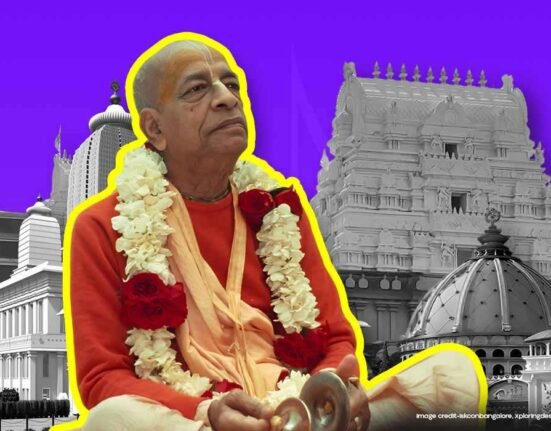Within the soft rumble of gurdwara langar halls where food is served by hands and made by hearts, there resides the great teaching of emotional and spiritual connection. Volunteering at gurdwaras, nourishing the Sikh tradition of Sewa or selfless service, goes so far beyond an altruistic action and becomes an embodied manifestation of love, humility and oneness.
Service, in this form, transforms both the giver and the receiver, building profound psychological strength, moral courage and a sense of belonging. For those who embrace Sewa, it is not just a religious obligation but the way towards inner peace, formation of identity and social harmony. Comprehending the emotional and psychological aspects of the benefit of volunteering in gurdwaras, therefore, uncovers how service, once imbued through the spirit, serves not merely individual growth but the collective good.
Read More: The Powerful Connection Between Mental Health and Spirituality
Emotional and Spiritual Health
- Feeling of contentment and serenity: Sewa is closely related to emotional health. In one study, participants explained that the action of Sewa should give peace rather than any tangible benefit. One participant noted that doing community work brought satisfaction and helped them become proactive rather than reactive. When practising Sewa outside a Sikh context, participants still see themselves as performing their beliefs, which leads to a sense of satisfaction or peace.
- Selflessness and Transcendence of the Ego: Sewa has been considered the best negation of the ego. Cultivating active and willing service helps people go beyond the ego, beyond self-interest, and understand the basic oneness of all human beings.
- Morality and Righteous Behaviour: Sewa strengthens morality, helping to develop character based on values of truth, love and equality. It means consistently abandoning negative behaviour and assimilating positive values, bringing self-upgrading.
- Feelings of Humility and Worthiness: Individuals report that involvement in volunteering “humbles us”. Being Sikh means performing actions that represent the tenets of Sikhism, and participants equate serving the community with achieving a sense of personal worthiness. It reinforces the identity of being a “good person” or a “good Sikh”.
Read More: Reframing Negative Thoughts for a Positive Life
Identity and Community Reinforcement
The gurdwara acts as a central hub where religious teachings and social relationships bolster the volunteer’s psychological sense of self and belonging:
- Powerful Collective Identity: Sikh identity has the strong connotation of “getting connected to the community,” “doing something for the community”, and “giving back to the community”. This is best demonstrated by the communal kitchen (Langar), which embodies equality, humility and love for everyone involved.
- Sense of Belonging: Volunteering in a gurdwara starts at an early age and is frequently referred to as a “family centre”. This involvement gives young Sikhs a vital sense of community.
- Integration and Outreach: For second-generation Sikhs living in the U.S., volunteering is a channel to participate in wider society and a way to balance their dual identity of “being Sikh and American at the same time”. This involvement helps them connect to diverse non-Sikh organisations.
- Protecting and Redefining Image: Volunteering is seen as an essential way to inform fellow Americans about the genuine beliefs of Sikhs, dispel myths and contribute to the restoration of a positive Sikh image in society, especially in the wake of September 11th. A certain amount of communal protection against possible discrimination or hate crimes is provided by this endeavour to demonstrate to outsiders that Sikhs are responsible and kind individuals.
Overall Psychological and Cognitive Advantages of Volunteering
Religious service and charity are linked to certain cognitive and psychological advantages on their own, according to research on various populations and circumstances:
- Better Mental Predictors of Well-Being: Higher levels of self-efficacy and self-esteem have long been linked to volunteering. It has also been connected to better self-attitudes and concepts of oneself towards society, specifically among the youth.
- Fewer Depressive Symptoms: Volunteering and fewer depressive symptoms go together. For older adults, consistent and long-term volunteering was linked to fewer depressive symptoms later in life.
- Meaning of Life: Volunteering has been associated with higher cognitive ratings, which are judgments of meaning and fulfilment of life.
- Social Resources and Support: Volunteering benefits psychosocial well-being positively by increasing social integration and volunteers’ ability to have strong and caring social connections. It is associated with lower levels of loneliness, particularly among those who have been recently widowed, as research shows.
- Acquisition of Skills: Volunteering provides individuals with useful skills such as event planning, organising and leadership roles. It even provides the opportunity of exposure to learning new cultures and celebrate diversity.
Read More: 5 Simple Ways to Find Meaning and Purpose in Life
Conclusion
Ultimately, Sikh philosophy—serving others as an expression of love for the Divine—comes to life through gurdwara service. People get power through connecting, humility through action and peace in purpose via Sewa. It fosters emotional equilibrium, strengthens moral foundation and solidifies one’s identity both within and outside the gurudwara. It is a process of becoming, of growing understanding, compassion and openness to the fabric of human existence, rather than just a charitable act. In its genius of shared service, the gurdwara becomes both a sanctuary and a classroom, teaching that happiness comes from giving, without asking for anything in return.
FAQs
1. What makes volunteering in gurdwaras unique compared to other forms of service?
Volunteering in gurdwaras stems from the Sikh principle of Sewa, or selfless service performed without expectation of reward. It’s not just an act of charity but a spiritual practice that blends compassion, humility and unity. Serving in the langar (community kitchen) or helping with temple upkeep becomes a way to connect deeply with one’s faith, reduce ego and experience inner peace. This unique combination of service and spirituality makes gurdwara volunteering transformative for both the individual and the community.
2. How does Sewa contribute to emotional and spiritual well-being?
Sewa nurtures emotional peace and balance by encouraging individuals to act selflessly and let go of ego-driven desires. Volunteers often describe a sense of calm and satisfaction that arises from helping others. The practice reinforces moral values such as truth, love, and equality, fostering humility and self-worth. Over time, this leads to greater emotional stability and personal growth, turning simple acts of service into a path toward inner harmony and fulfilment.
3. In what ways does volunteering strengthen identity and belonging within the Sikh community?
The gurdwara acts as both a spiritual and social hub, strengthening a volunteer’s sense of belonging and collective identity. By working together in service, Sikhs build a shared sense of pride and unity. For younger generations, it serves as a space to connect with cultural roots, while for second-generation Sikhs abroad, it offers a way to balance dual identities—remaining true to their faith while engaging with wider society. Volunteering also helps the community collectively reaffirm its values and positive image in the broader world.
4. Are there any broader psychological benefits of volunteering beyond a religious context?
Yes. Research shows that volunteering of any kind improves mental health and cognitive well-being. It’s linked to higher self-esteem, better self-concept and reduced depressive symptoms. Volunteering fosters social support networks, reduces loneliness and gives people a sense of purpose and meaning in life. Many volunteers also develop valuable life skills such as organisation, leadership and empathy—all of which enhance psychological resilience and personal confidence.
5. What does volunteering in gurdwaras ultimately teach us about life and personal growth?
At its heart, volunteering in gurdwaras teaches that true fulfilment comes not from what we gain, but from what we give. Sewa transforms service into a spiritual journey, helping individuals become more mindful, compassionate and balanced. It reminds us that emotional healing, moral strength and community harmony can all begin with simple acts of care. In this way, the gurdwara becomes both a sanctuary and a classroom, showing that serving humanity is one of the highest forms of worship.
References +
Butalia, A., Kaur, R., & Behl, R. (2023). Emotional and psychological benefits of volunteering in gurdwaras [Article]. Horizon: Journal of Humanities & Social Sciences Research, 12, 92–103. https://www.horizon-jhssr.com/articles/authors/pdf version-12/12%20JHSSR-1213.pdf
Jiang, D., Warner, L. M., Chong, A. M.-L., Li, T., Wolff, J. K., & Chou, K. L. (2021). Benefits of volunteering on psychological well-being in older adulthood: Evidence from a randomised controlled trial. Ageing & Mental Health, 25(4), 641–649. https://doi.org/10.1080/13607863.2020.1711862
Kaur, N. P. (2014). “We are a volunteering religion”: A qualitative study of second-generation Sikhs’ volunteering practices in Southeastern Michigan (Doctoral dissertation). Wayne State University. https://digitalcommons.wayne.edu/oa_dissertations/892
Miles, I., Sullivan, W. C., & Kuo, F. E. (2000). Psychological benefits of volunteering for restoration projects. Ecological Restoration, 18(4), 218–227. https://doi.org/10.3368/er.18.4.218
Moore, C. W., & Allen, J. P. (1996). The effects of volunteering on the young volunteer. The Journal of Primary Prevention, 17(2), 231–258. https://doi.org/10.1007/BF02248794
Morrow-Howell, N., Hong, S., & Tang, F. (2009). Who benefits from volunteering? Variations in perceived benefits. The Gerontologist, 49(1), 91–102. https://doi.org/10.1093/geront/gnp007
Musick, M. A., & Wilson, J. (2003). Volunteering and depression: The role of psychological and social resources in different age groups. Social Science & Medicine, 56(2), 259–269. https://doi.org/10.1016/S0277-9536(02)00025-4
Singh, A., & Tuteja, G. S. (2022). Role of “Guru Ka Langar” in pandemic management during COVID-19: Guided by religious belief. Journal of Business Thought, 13, 85–93. https://www.researchgate.net/publication/362775787_Role_of_%27Guru_Ka_Langar %27_in_Pandemic_Management_During_COVID-19_Guided_by_Religious_Belief
Singh, N. (2023). Sikhism and COVID-19: Ethics of community service and activism. Sikh Formations: Religion, Culture, Theory, 19(3), 264–276. https://doi.org/10.1080/17448727.2022.2084946
Whillans, A. V., Seider, S. C., Chen, L., Dwyer, R. J., Novick, S., Gramigna, K. J., Mitchell, B. A., Savalei, V., Dickerson, S. S., & Dunn, E. W. (2017). Does volunteering improve well-being? Comprehensive Results in Social Psychology. https://doi.org/10.1080/23743603.2016.1273647
Windsor, T. D., Anstey, K. J., & Rodgers, B. (2008). Volunteering and psychological well-being among young-old adults: How much is too much? The Gerontologist, 48(1), 59–70. https://doi.org/10.1093/geront/48.1.59













Leave feedback about this